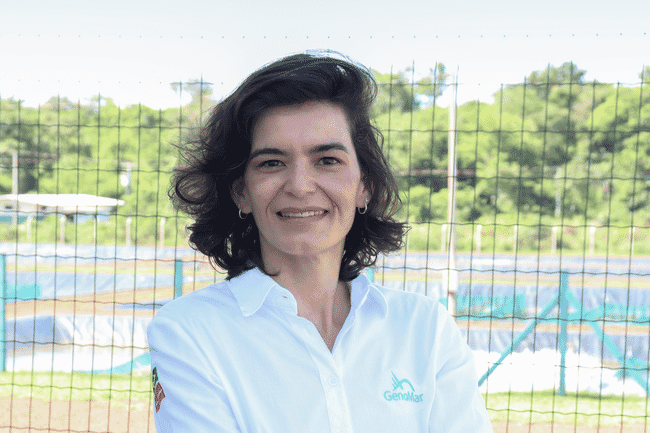
The group operates tilapia breeding centres in Norway, Asia and Latin America © GenoMar
Delphino has been tasked with developing and implementing a unified vision and strategy in fish health, welfare, and quality for all GenoMar’s global operations, in order to deliver robust and healthy starting material to all the company’s customers.
"Marina has done an outstanding job setting up and maintaining a whole new standard in biosecurity and health management at our tilapia breeding center in LATAM. We want to replicate similar standards across all our operations and lead the way in the biosecurity as much as we do in genetic performance. Her skills, experiences and uncompromising attitude will provide great leadership to our global teams to reach that goal," said Alejandro Tola Alvarez, CEO of GenoMar Genetics Group, in a press release.
Delphino added: “I'm excited to take up this new role at GenoMar. Building on my journey since 2020 as the fish health and welfare manager at the Brazilian Breeding Center, I will be dedicating my efforts to maintaining our top-tier biosecurity and health standards across all units. Furthermore, my focus will be on achieving crucial certifications and building systems for quality control of the final product. This move represents a major step forward in the company´s collective pursuit of sustainable, high-quality aquaculture."
Education and professional experience
Delphino holds a PhD in veterinary epidemiology from the University of Brasilia. Before she started her position at GenoMar Genetics LATAM in October 2020, she contributed to aquatic animal health coordination at the Ministry of Fisheries and Aquaculture in Brasilia. Her responsibilities included developing surveillance for aquatic animals and conducting import risk analysis for aquatic animals and their products.
During her PhD, she engaged in a project to identify the key disease risks of tilapia farming in a tropical reservoir. This involved a comprehensive study, characterising the dynamics of prevalent pathogens. The findings served as a foundation for the development of effective control measures, influencing tilapia health and enhancing surveillance programmes.
Later she became a postdoctoral fellow, working with the Canada excellence research chair in aquatic epidemiology at the University of Prince Edward Island.




